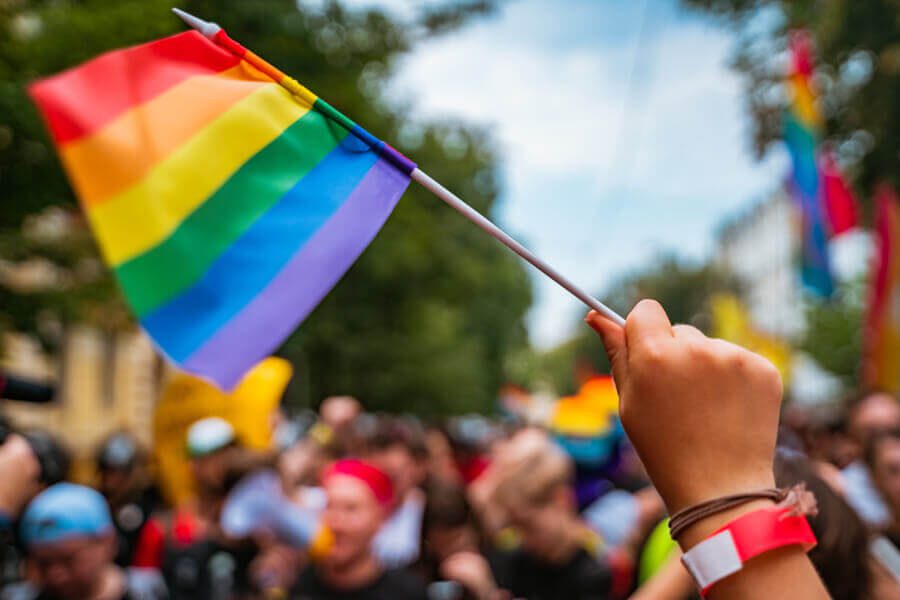


Supreme Court Win: Title VII is Extended to Include LGBTQ Workers



In a monumental decision on June 15, 2020, the U.S. Supreme Court ruled that an employer who fires an individual merely for being gay or transgender violates Title VII of the Civil Rights Act of 1964. LGBTQ individuals and advocates have hailed this decision, which acts to forbid job discrimination on the basis of sexual orientation and gender expression, as a watershed moment for LGBTQ fairness and equality. This decision comes in the middle of Pride Month, and just days after the Trump Administration announced it would be eliminating an Obama-era regulation prohibiting discrimination in health care against transgender patients.
In making this ruling, the Supreme Court reviewed several instances of workplace discrimination in which an employer allegedly fired a long-time employee simply for being homosexual or transgender. These instances involved Gerald Bostock, a Georgia resident who was fired from his job as a child welfare services coordinator after he joined a gay softball team; the relatives of Donald Zarda, a skydiving instructor who was fired after he revealed his sexual orientation to a client; and Aimee Stephens, a transgender woman who was fired after she informed her employer that she planned to “live and work full-time as a woman.” The specific language of Title VII makes it “unlawful . . . for an employer to fail or refuse to hire or to discharge any individual, or otherwise to discriminate against any individual . . . because of such individual’s race, color, religion, sex, or national origin.” In the 6-3 ruling, the Supreme Court extended the scope of this Title VII language to include homosexual and transgender individuals.
Justice Neil M. Gorsuch, a recent Trump-appointed Supreme Court Justice, stated in the majority opinion that “because discrimination on the basis of homosexuality or transgender status requires an employer to intentionally treat individual employees differently because of their sex, an employer who intentionally penalizes an employee for being homosexual or transgender also violates Title VII.” Gorsuch went on to argue that “an employer who fires an individual for being homosexual or transgender fires that person for traits or actions it would not have questioned in members of a different sex. Sex plays a necessary and undisguisable role in the decision; exactly what Title VII forbids.”
While Chief Justice John G. Roberts Jr. and Justices Ruth Bader Ginsburg, Stephen Breyer, Sonia Sotomayor and Elena Kagan all joined Gorsuch’s majority decision, Justices Clarence Thomas, Samuel A. Alito Jr. and Brett M. Kavanaugh each dissented. Justice Alito wrote in his dissent that “even if discrimination based on sexual orientation or gender identity could be squeezed into some arcane understanding of sex discrimination, the context in which Title VII was enacted would tell us that this is not what the statute’s terms were understood to mean at that time.” But to this end, Gorsuch stated in his opinion that “the limits of the drafters’ imagination supply no reason to ignore the law’s demands […] Only the written word is the law, and all persons are entitled to its benefit.”
As LGBTQ groups around the country celebrate the court’s ruling, the response from conservative groups like the Judicial Crisis Network has been less than positive. JCN’s president Carrie Severino tweeted her thoughts Monday morning, stating “Justice Scalia would be disappointed that his successor has bungled textualism so badly today, for the sake of appealing to college campuses and editorial boards”, and going as far to call the decision “a brute force attack on our constitutional system.” But someone with a more positive outlook on the decision is Aimee Stephens’ wife, Donna Stephens, who describes her wife as “a leader who fought against discrimination against transgender people.” Ms. Stephens goes on to state, “I am grateful for this victory to honor the legacy of Aimee, and to ensure people are treated fairly regardless of their sexual orientation or gender identity.”
The attorneys at The Mandel Law Firm echo the sentiment of Ms. Stephens and are ecstatic with the decision the Supreme Court handed down on Monday morning. The Mandel Law Firm supports the LGBTQ community in its fight against discrimination and commends the Supreme Court for giving LGBTQ individuals protection from employment discrimination. As Pride Month comes to a close, The Mandel Law Firm is inspired and invigorated by the voices of individuals and activists who made this Supreme Court decision possible. We are reminded that the fight for LGBTQ inclusion, visibility, and respect is of the utmost importance, and proudly stand with our LGBTQ clients, friends and family as we celebrate this immense victory.











